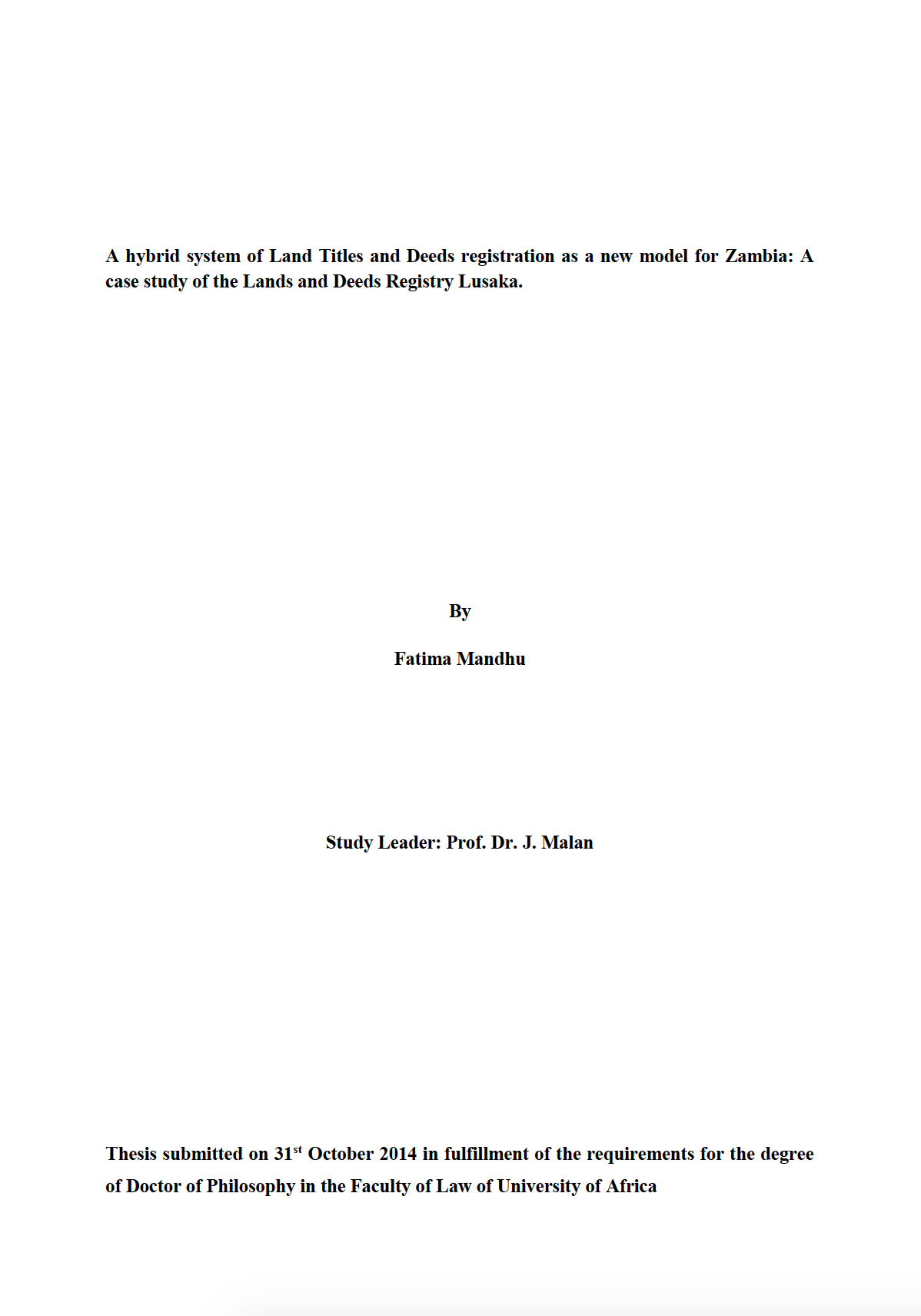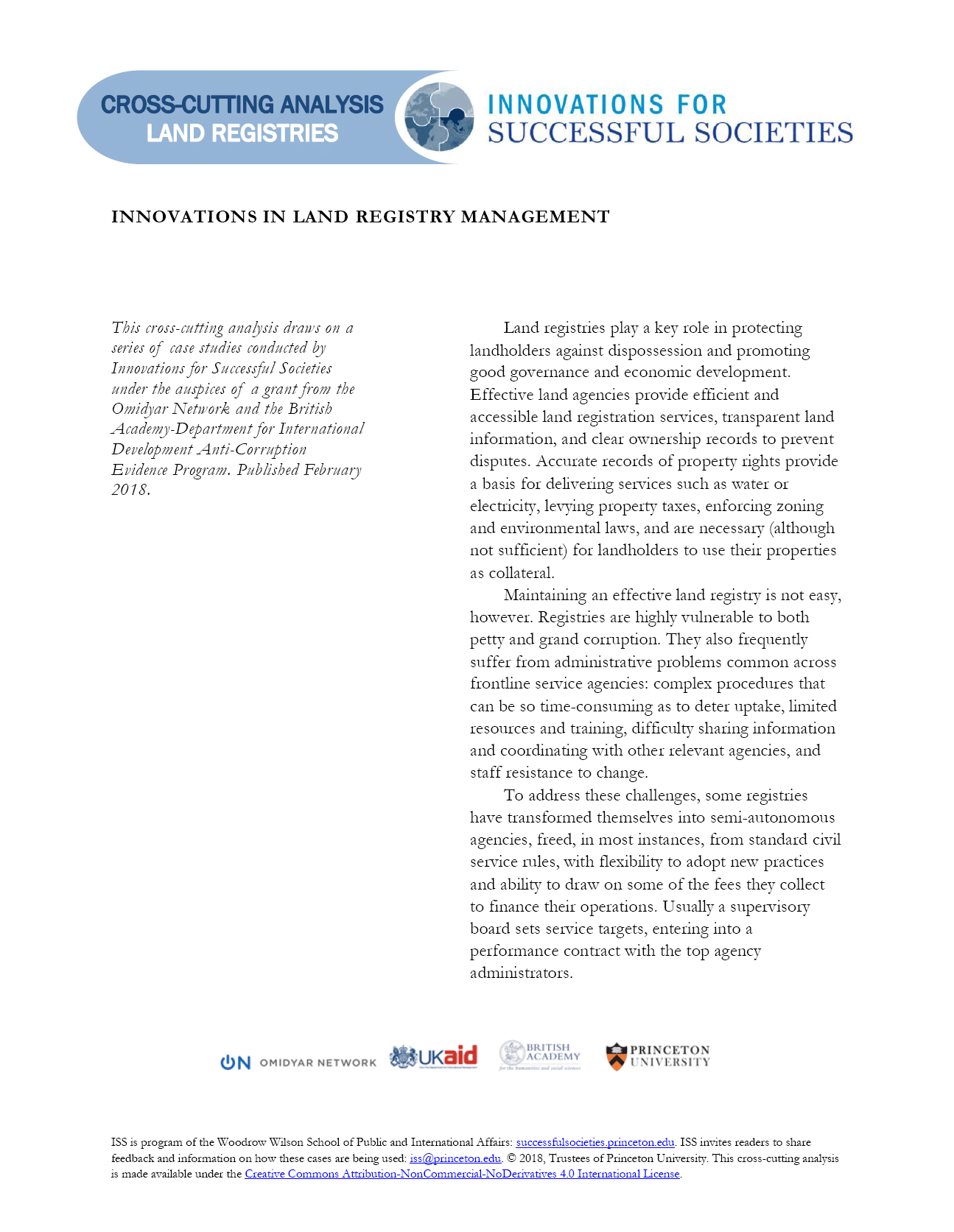Land for infrastructure development: compulsory acquisition and compensation of unregistered/undocumented land in Kenya
Kenya’s Vision 2030 aims at transforming the country into a newly industrialized middle income country
and infrastructural development is high on the agenda to achieve this. Competing land uses and existing
interests in land make the use of eminent domain by government in acquiring land inevitable. However
most of the land earmarked for compulsory acquisition comprises of un- registered land whose interests











